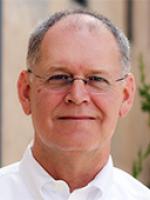Wendell Potter Discusses ALEC
Wendell Potter has served since May 2009 as the Center For Media and Democracy's Senior Fellow on Health Care. After a 20-year career as a corporate public relations executive, last year he left his job as head of communications for one of the nation's largest health insurers to try his hand at helping socially responsible organizations -- including those advocating for meaningful health care reform -- achieve their goals.
For an extended audio interview of Wendell discussing ALEC, see below.
To read Wendell's ALEC article in The Nation, see below.
To see a full listing of ALEC Exposed Audio & Video, click here.
Based in Philadelphia, Wendell now provides strategic communications counsel and planning services as an independent consultant. He also speaks out on both the need for a fundamental overhaul of the American health care system and on the dangers to American democracy and society of the decline of the media as watchdog, which has contributed to the growing and increasingly unchecked influence of corporate PR.
Before his big switch, Wendell held a variety of positions at CIGNA Corporation over 15 years, serving most recently as head of corporate communications and as the company's chief corporate spokesman.
Prior to joining CIGNA, Wendell headed communications at Humana Inc., another large for-profit health insurer. Before that he was director of public relations and advertising for The Baptist Health System of East Tennessee. He also has been a partner in an Atlanta public relations firm, a press secretary to a Democratic nominee for governor of Tennessee and as a lobbyist in Washington for the organizers of the 1982 World's Fair in Knoxville, Tenn. He also served as a member of the public relations and international marketing team for the Fair and traveled to Europe, Africa and South America on country recruitment missions.
Wendell also was a journalist. His first job after college was as a reporter for Scripps-Howard's afternoon paper in Memphis. He wrote about Memphis businesses and local government before being sent to Nashville to cover the governor's office and state legislature. Two years later he was promoted to the Scripps-Howard News Bureau in Washington where he covered Congress, the White House and the Supreme Court and wrote a weekly political column.
Wendell is a native of Tennessee and a graduate of the University of Tennessee in Knoxville where he received a B.A. degree in communications and did postgraduate work in journalism and public relations. He holds an APR, which means he is accredited in public relations by the Public Relations Society of America, and is still a proud dues-paying member of the Society of Professional Journalists and theNational Press Club in Washington.
Wendell Potter Audio Interview
Wendell Potter on ALEC in The Nation
Read the whole article here.
Excerpt: "Reviewing ALEC’s healthcare-related bills and resolutions from the past few years makes it clear that insurers realized early on that the best way to block the profit-threatening provisions of any federal reform would be to attack them at the state level through ALEC. With Democrats in control of both houses of Congress and the White House in 2009, insurers assumed some kind of healthcare reform was inevitable, so they adopted a strategy to shape rather than stop reform. Its top five goals became:
§ Keeping single-payer proposals off the table;
§ Ensuring that the final bill contain a clause requiring all Americans not eligible for an existing federal program to buy coverage from a private insurance company;
§ Preventing the new law from establishing a government-run plan (the “public option”) that would compete with private insurers;
§ Making sure that the reform law is implemented primarily at the state level, to keep the federal government from assuming any significant new oversight of private insurers’ business practices; and
§ Keeping any new regulations and consumer protections to a minimum.
Insurers achieved their first four goals, with ALEC playing a key role in a well-coordinated effort to keep the most progressive proposals from being enacted at the state or federal level. Where it fell short was in blocking provisions of the law that will impose more rigorous oversight of insurance companies’ business practices. After Obama signed the bill into law, the industry turned its attention to influencing how the new regulations would be written (by the NAIC and federal bureaucrats) and how the law would be implemented in the states."
